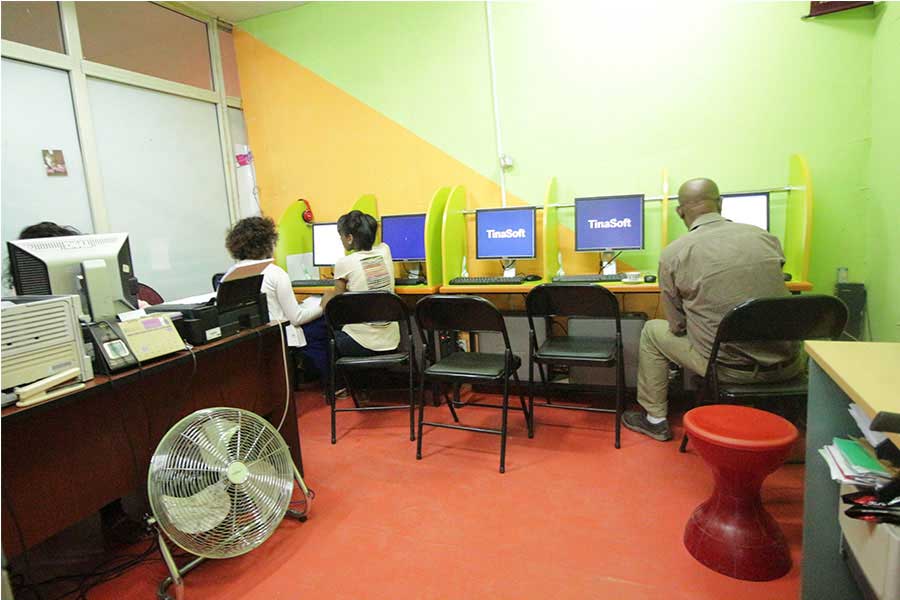
Viewpoints | Sep 10,2021
Nov 4 , 2023
By Kidist Yidnekachew
In an era where information consumption is revolutionised by technology, the use of social media and how it shapes narratives is an issue that provokes thought.
What was once dominated by traditional media institutions, the information landscape has been democratised, giving marginalised groups and individuals a platform to share their stories directly with the world.
This shift has had a profound impact on social discourse, enabling us to challenge and change existing records and raise awareness of critical issues.
One such stroke is the "MeToo" movement which exploded all over social media. By encouraging survivors to share their stories online, the movement exposed the pervasive nature of harassment, sparking a global conversation and forcing institutions to confront this issue.
Similarly, the "Black Lives Matter" movement has used social media to amplify the injustice against black people and document police brutality.
Virtual community has also played its role in mobilising activists and raising awareness about crucial issues, such as mass incarceration and voter suppression.
In a quest to reshape identities, these social networks have paved the way for individuals to reclaim and forge new identities. People with disabilities and chronic health conditions have used these platforms to challenge negative stereotypes and raise awareness about their lived realities.
They have built communities where they can share their experiences and support each other in ways that were not possible before and share inspiring success stories.
In addition to its narrative-shifting power, the social platform has also emerged as a potent tool for activism. Social media boycotts are increasingly used to pressure businesses and organisations to change their policies and practices.
The ease of transmitting trending news to millions worldwide makes it difficult to ignore, which could lead to decreased sales, reputational damage, and policy changes.
Companies are pressured to stop using sweatshop labour, adopt more sustainable practices, and donate to charitable causes while being accountable for human rights abuses and environmental damage.
The wave has also come to Ethiopia with internet users hovering around 20.86 million people at the start of 2023 while its profound impact is yet to be seen. But with the road to digitisation exceeding by the year, its effect will be inevitable.
While social media has been used to promote positivity, it can also be exploited to spread misinformation.
A study by the University of Cambridge found that social media use leads to the formation of echo chambers as it often prioritises pre-existing beliefs and preferences of users when selecting content.
Reinforcing an existing opinion makes it difficult to consider alternative viewpoints.
As a result, individuals may become more entrenched in their ideologies and less open to engaging with diverse perspectives. Furthermore, the viral nature of misinformation can quickly amplify false narratives, creating a significant challenge for fact-checkers and contributing to the erosion of trust in traditional media sources.
It is essential to be critical of the information we encounter on social media and to verify it with other sources. Nevertheless, social media remains a powerful tool for shifting narratives and challenging the status quo.
The modern era empowered by digitisation enables us to stay updated on current events, engage in meaningful conversations, and form communities based on shared interests and causes.
We have broken geographical barriers and connected worldwide. By leveraging social media power, we can create a more connected and informed society.
PUBLISHED ON
Nov 04,2023 [ VOL
24 , NO
1227]


Viewpoints | Sep 10,2021

Life Matters | Aug 29,2020

Radar | Apr 12,2020

Sunday with Eden | May 13,2023

Viewpoints | Dec 04,2021

Life Matters | Jun 21,2025

Viewpoints | Jun 27,2020

Exclusive Interviews | Apr 19,2025

Commentaries | Feb 05,2022

News Analysis | Jan 05,2020

Photo Gallery | 179839 Views | May 06,2019

Photo Gallery | 170035 Views | Apr 26,2019

Photo Gallery | 161009 Views | Oct 06,2021

My Opinion | 137220 Views | Aug 14,2021

Dec 22 , 2024 . By TIZITA SHEWAFERAW
Charged with transforming colossal state-owned enterprises into modern and competitiv...

Aug 18 , 2024 . By AKSAH ITALO
Although predictable Yonas Zerihun's job in the ride-hailing service is not immune to...

Jul 28 , 2024 . By TIZITA SHEWAFERAW
Unhabitual, perhaps too many, Samuel Gebreyohannes, 38, used to occasionally enjoy a couple of beers at breakfast. However, he recently swit...

Jul 13 , 2024 . By AKSAH ITALO
Investors who rely on tractors, trucks, and field vehicles for commuting, transporting commodities, and f...

Nov 1 , 2025
The National Bank of Ethiopia (NBE) issued a statement two weeks ago that appeared to...

Oct 25 , 2025
The regulatory machinery is on overdrive. In only two years, no fewer than 35 new pro...

Oct 18 , 2025
The political establishment, notably the ruling party and its top brass, has become p...

Oct 11 , 2025
Ladislas Farago, a roving Associated Press (AP) correspondent, arrived in Ethiopia in...

Nov 2 , 2025
The National Bank of Ethiopia (NBE) has scrapped the credit-growth ceiling that had s...

Nov 2 , 2025 . By SURAFEL MULUGETA
The burgeoning data mining industry is struggling with mounting concerns following th...

Nov 2 , 2025 . By YITBAREK GETACHEW
Berhan Bank has chosen a different route in its pursuit of a new headquarters, opting for a transitional building instea...

Nov 2 , 2025 . By BEZAWIT HULUAGER
Nib International Bank S.C. has found itself at the epicentre of a severe governance...